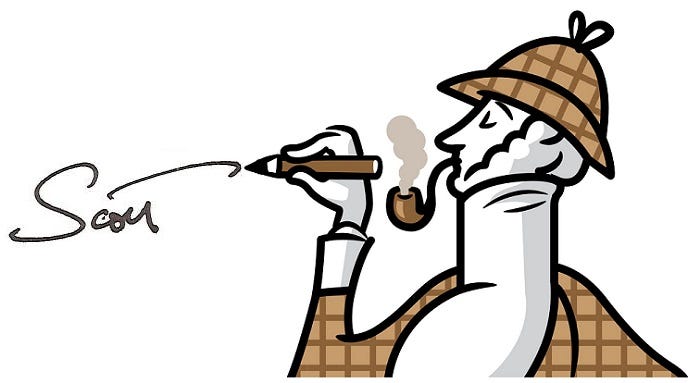Unending Grief
We need to thrive, not just to endure. And for that we need each other.

“Grief, loss, regret are not the end of the story. They are the middle of the story. Memory does not look backward, it looks forward.”
— Anne Michaels, 2020
Grief is most commonly considered an acute private affliction, poised to interrupt us intermittently with emotional memories when we least expect it.1
The grief of our age is compounded by its constancy. There is no time to mourn; the next calamity is already trending. The cost of living climbs while the value of living declines. The law bends to power; the powerful bend the truth. It is as if civilization itself has entered a kind of nervous breakdown, and each of us must find our own means of therapy.
As Ann Michaels wrote:
“What does it mean when one’s most private, most profound experience, the cataclysm that shapes one’s life, is also the most intimate experience of thousands of others? What place can be found for our private grief when set against the losses of entire nations?” 2
How, then, should we endure? Not, I think, through denial or performance, but through a slower, older kind of courage. A courage born of our own strength and of the love and care of those around us.
Historic Grief
Grief, like history, refuses to stay buried. It comes to us unbidden, long after the mourners have gone home and the flowers have wilted, settling into the corners of our lives like an unwelcome but permanent guest.
The ancients personified it as the goddess Melpomene,3 muse of tragedy, her face half-veiled, her eyes forever cast toward what was lost. Modern civilization, with its antiseptic optimism, pretends not to know her name.
But she remains, whispering in the long nights, demanding to be acknowledged, just as she was thousands of years ago.
A Father’s Grief, Part 1
Consider Cicero, bereft over the of his beloved daughter Tullia in childbirth and witnessing the collapse of the Roman Republic. He knew the despair of living in a world that no longer made moral sense. He had spent a lifetime defending the republic with his words, only to see words lose their power against the brute logic of ambition.
His grief for Tullia merged with a grief for Rome itself — a civilization that had forgotten how to blush. Cicero sought refuge in Stoicism, in the comforting abstractions of virtue and destiny, yet could not calm the human tremor beneath the toga. Even the wisest Roman, it turns out, was still a father broken by love.
A Father’s Grief, Part 2
Two millennia later, Abraham Lincoln walked the same dark valley. A president by day and a mourner by night, he carried both the Union and his melancholia like twin stones in his pockets. Amid a war already red with sacrifice, the death of his son Willie in 1862 nearly crushed him. His secretary recorded that Lincoln “buried his heart” with the boy.
Yet Lincoln did not retire to solitude as Cicero had. He turned instead toward the suffering of others, as if to dilute his own. The laughter for which he was famous — long, raucous, sometimes unbecoming in its timing — was not frivolity but self-defense, a trench dug against despair. It was his way of insisting that sorrow would not have the last word. Humor, in Lincoln’s hands, became a sacrament of survival.
Heart Condition
Grief enlarges the heart even as it wounds it.
It is no coincidence that those who have known grief deeply are often the most gracious in their dealings with others. Grief enlarges the heart even as it wounds it. It strips away pretense, leaving the raw sinew of what endures: compassion, humility, and that rarest of virtues: mercy.
Cicero never regained his former confidence, but his late letters radiate a tenderness that no triumph in the Forum ever inspired. Lincoln, emerging from his sorrows, could speak to a nation “with malice toward none, with charity for all.”4
Both men discovered that the measure of strength is not the absence of pain, but the willingness to bear it without surrendering decency.
The ancients told us that character is fate. But grief teaches that character is also the art of repair — the slow mending of the self after the world has been torn. What restores us is not the hollow comfort of stoic aphorisms, nor the modern demand to “move on,” but the recognition that life, in its truest form, is inseparable from loss.
Grace, humor, resilience — these are not traits bestowed by fortune; they are chiseled by it. They are what remain when the temple has fallen and one still chooses to pray among the ruins.
Grace is not a passive virtue; it is a rebellion against chaos. It is the decision to remain kind when cruelty is cheap, to stay patient when outrage is profitable.
Humor is its twin — a wink at the absurdity of our predicament, proof that despair has not colonized the whole heart.
And resilience, that quiet endurance, is the art of rebuilding the world one gesture at a time: a handwritten letter, a neighbor checked upon, a truth told without fear.
“Bereavement is a darkness impenetrable to the imagination of the unbereaved.”
— Iris Murdoch, 1974
Grief is a Team Sport
Grief is inherently personal, its stamp on each of us as unique as a snowflake. But it needn’t be endured alone.
We carry on by borrowing light from one another — a friend’s kindness, a stranger’s joke, a piece of music that momentarily convinces us the world is still worth inhabiting. In that sense, grief is not merely a private ordeal but a social contract, reminding us that the only thing stronger than sorrow is the grace with which we share it.
Just as Cicero and Lincoln, we must reach outward: toward community, toward conversation, toward the small rituals that remind us we are still human.
To share grief is to halve it. To name it aloud is to strip it of tyranny. The task of our age is not to banish sorrow but to learn how to bear it beautifully.
For grief, properly understood, is the tax we pay on consciousness. It is proof that we were awake while the world was changing, able to feel something, even if it was painful.
The measure of our civilization in these disordered days will not be the intelligence of our machines but the tenderness of our hearts — the grace with which we mourn what is lost, the humor with which we still choose to live, and the resilience that powers us and helps us inspire others to find theirs.
Perhaps that is what leadership really is: the courage to walk in the company of grief and still, somehow, to offer light.
There’s so much to learn,
An offer:
I have a 72-page ebook on the topic of Grief & Transition.
It’s not easy out there right now.
The mental health of Americans is at an all-time low, people are desperate for friendships, undergoing job cuts, and looming societal uncertainty means that we’re all living on the edge. We’re at a breaking point.
In this series of incisive and inspiring essays, I tap into days of the recent past and long past to find a common bond, both in suffering and in hope for humanity. If you’re struggling with anything in your life — job, family, health, the state of politics — there’s something in this for you.
You’ll find examples of patience, resilience, strength, grace, and self-awareness that can help you appreciate or find what you have within yourself.
It’s just $4.99 if you act now.
Or FREE if you’re a paid subscriber.
For members of our Ampersand Guild (paid subscribers), here is a 100% discount code so you can get the ebook for FREE:
Keep reading with a 7-day free trial
Subscribe to Timeless & Timely to keep reading this post and get 7 days of free access to the full post archives.



